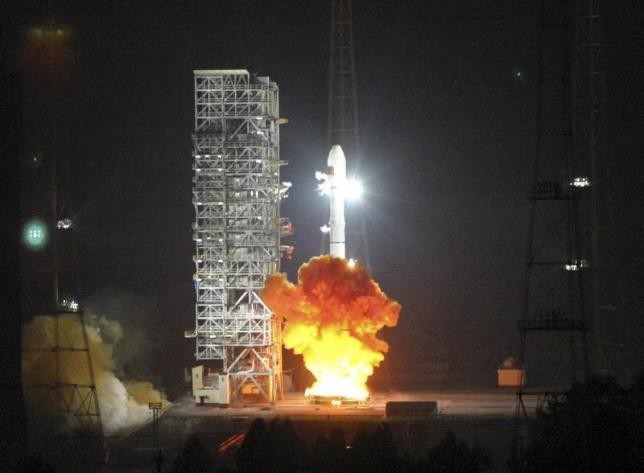SJ-10, the first satellite that will conduct experiments on microgravity, was successfully launched by China at the Jiuquan Satellite Launch Center in Gansu Province at 1:38 a.m., on April 6, China Daily reported.
The satellite, shaped like a bullet, has 19 experimental loads that will be used for 28 scientific research projects in microgravity as well as research into fluid physics, coal combustion, fire safety on manned space flights, and materials processing.
Previously, experiments on microgravity have already been conducted on space facilities such as space stations, space shuttles and research rockets.
The report said that China's SJ-10 will be in the orbit for a few days, while additional experiments will be conducted by an orbital module that will stay in space for another few days.
"The recoverable satellite is a useful and efficient tool for microgravity experiments, compared to space stations and research rockets," physicist Hu Wenrui, chief scientist of SJ-10 and a member of the Chinese Academy of Sciences (CAS), said.
At least 11 institutes of the CAS and six other Chinese universities have partnered with the European Space Agency and Japan Aerospace Exploration Agency to carry out SJ-10. The Strategic Priority Program on Space Science, which was started in 2011, is also planning to launch four satellites by the end of the year.
The program's first satellite, launched in December to research on dark matter, is now collecting data.
A satellite for quantum science experiments and a hard X-ray telescope for black hole and neutron star studies will also be launched through the program in the future.
The International Business Times reported that SJ-10 would return to Earth, in a re-entry capsule, after 12 days of orbit.
The report said that China is catching up with achievements of the U.S. and Russia, although its space program started late, compared with those of the traditional space powers.
"China by virtue of the ambition of its space program stands out," Dr. Louis Brennan, professor and co-author of the book "The Business of Space," wrote in a CNN op-ed earlier this year. "China has already achieved rapid success and has more long-term plans for deeper venturing into space, including Mars."
China is now working to complete its space station by 2020, around the time that the International Space Station will run out of funding. According to the report, if China manages to launch its own space station, it will be the only country with permanent presence in space.



























